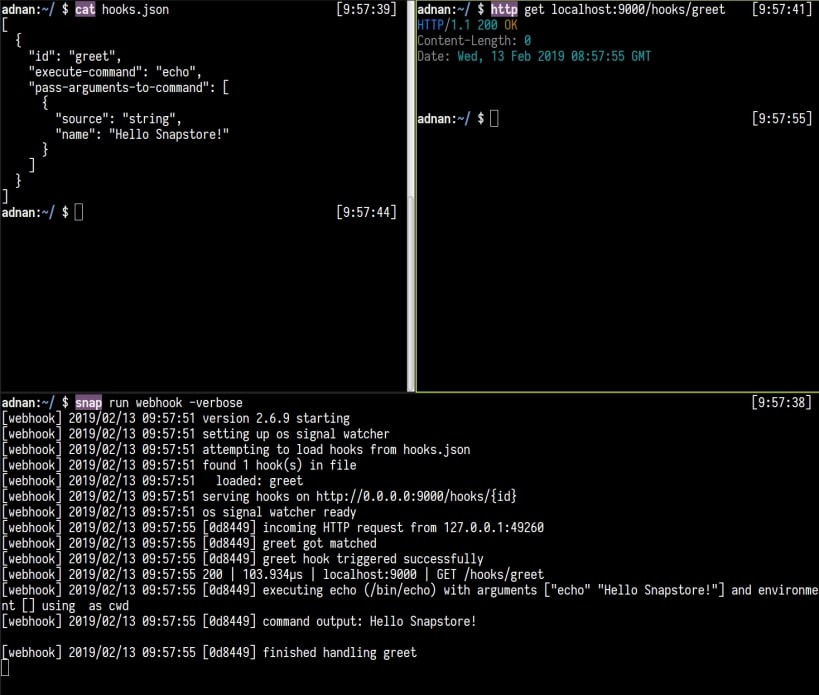



webhook is a lightweight configurable tool written in Go, that allows you to easily create HTTP endpoints (hooks) on your server, which you can use to execute configured commands. You can also pass data from the HTTP request (such as headers, payload or query variables) to your commands. webhook also allows you to specify rules which have to be satisfied in order for the hook to be triggered.
For example, if you're using Github or Bitbucket, you can use webhook to set up a hook that runs a redeploy script for your project on your staging server, whenever you push changes to the master branch of your project.
If you use Mattermost or Slack, you can set up an "Outgoing webhook integration" or "Slash command" to run various commands on your server, which can then report back directly to you or your channels using the "Incoming webhook integrations", or the appropriate response body.
webhook aims to do nothing more than it should do, and that is:
Everything else is the responsibility of the command's author.
For documentation and help visit the [official GitHub project page](https://github.com/adnanh/webhook).
You are about to open
Do you wish to proceed?
Thank you for your report. Information you provided will help us investigate further.
There was an error while sending your report. Please try again later.
Snaps are applications packaged with all their dependencies to run on all popular Linux distributions from a single build. They update automatically and roll back gracefully.
Snaps are discoverable and installable from the Snap Store, an app store with an audience of millions.

Snap can be installed from the command line. Open the Konsole terminal and enter the following:
sudo apt update
sudo apt install snapd
To install webhook, simply use the following command:
sudo snap install webhook
Browse and find snaps from the convenience of your desktop using the snap store snap.

Interested to find out more about snaps? Want to publish your own application? Visit snapcraft.io now.